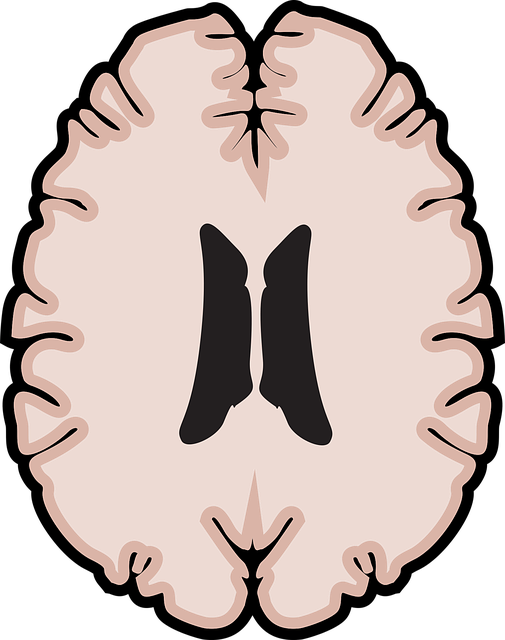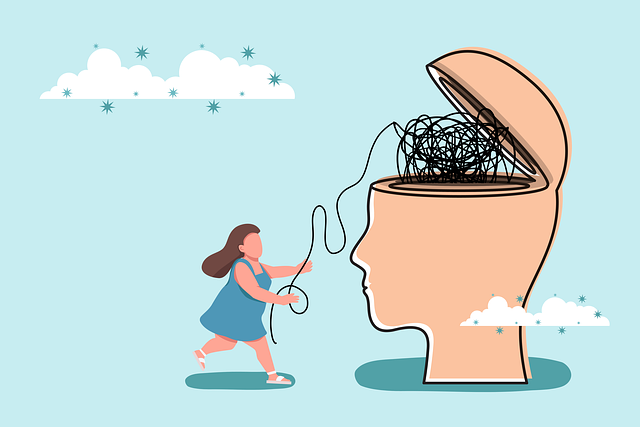Substance abuse is a complex issue with far-reaching consequences, but Littleton Dissociative Disorder Therapy (LDDT) offers a comprehensive solution. This approach targets underlying mental health conditions like dissociation, anxiety, and depression, which often drive substance misuse. By combining evidence-based treatments with conflict resolution techniques, LDDT promotes mental wellness and healthier coping mechanisms. Early recognition of risk factors and specialized care can prevent addiction, while group sessions, stress management workshops, and supportive networks further enhance recovery. Mindfulness practices and policy advocacy also play a crucial role in mitigating risks and building resilience against substance abuse.
Substance abuse poses significant risks, impacting individuals’ physical and mental health. This article explores comprehensive risk reduction strategies to combat this pressing issue. We delve into understanding the complexities of substance abuse, identifying early warning signs, and exploring effective therapy approaches, including treatments tailored for disorders like Littleton Dissociative Disorder. Additionally, we emphasize the importance of building robust support systems and implementing preventative measures to foster recovery and overall well-being.
- Understanding Substance Abuse and Its Risks
- Identifying Early Signs and Risk Factors
- Effective Therapy Approaches for Recovery
- Building Support Systems and Preventative Measures
Understanding Substance Abuse and Its Risks

Substance abuse is a complex issue that involves the harmful use of drugs or alcohol, leading to negative consequences for an individual’s health, relationships, and overall well-being. It’s crucial to understand that substance abuse doesn’t just affect those who are dependent; it has far-reaching risks for everyone in society. From increased crime rates and social problems to potential physical and mental health crises, the impact is profound.
Littleton Dissociative Disorder Therapy (LDDT) recognizes that addressing these issues requires a multifaceted approach. By combining evidence-based treatments with conflict resolution techniques, therapists can help individuals manage underlying conditions such as dissociation, anxiety, or depression. Promoting mental wellness through LDDT not only aids in substance abuse reduction but also enables individuals to develop healthier coping mechanisms and enhance their overall quality of life. This holistic strategy, coupled with support from mental wellness podcast series production platforms, can offer valuable resources for those seeking guidance and recovery.
Identifying Early Signs and Risk Factors

Recognizing early signs and risk factors is a pivotal step in mitigating substance abuse. Individuals with underlying mental health conditions, such as Littleton Dissociative Disorder Therapy patients, may be more susceptible to addiction. Symptoms like persistent feelings of detachment, difficulty regulating emotions, and altered perceptions can indicate a need for specialized care. By identifying these signs early on, individuals and their support networks can seek appropriate interventions before substance abuse takes hold.
Promoting mental wellness through self-care routine development and compassion cultivation practices proves beneficial in this context. Encouraging regular exercise, adequate sleep, and balanced diets fosters resilience against stress and potential triggers for substance misuse. Additionally, mindfulness exercises and cultivating empathy can enhance emotional regulation skills, helping individuals cope with challenging situations without resorting to substances.
Effective Therapy Approaches for Recovery

Effective therapy approaches play a pivotal role in substance abuse recovery. One promising method is Littleton Dissociative Disorder Therapy (LDDT), tailored for individuals grappling with dissociation, a common co-occurring condition. LDDT focuses on helping clients process and integrate traumatic experiences, thereby reducing symptoms and fostering stability. This therapeutic approach prioritizes a safe, supportive environment where therapists utilize empathy building strategies to create a deep connection with their patients.
Complementing individual therapy, group sessions and stress management workshops within organizations can significantly enhance recovery. These collaborative settings encourage participants to share experiences, learn coping skills, and build inner strength through collective support. By incorporating diverse therapeutic methods, including LDDT, and promoting empathy building strategies within supportive communities, individuals on the path to recovery gain valuable tools to manage triggers and sustain long-term sobriety.
Building Support Systems and Preventative Measures

Building strong support systems is a key component in reducing risks associated with substance abuse. This includes seeking professional help such as Littleton Dissociative Disorder Therapy, which offers specialized treatment for various mental health conditions. Therapists can guide individuals in managing symptoms and developing coping strategies to resist substance misuse. Additionally, fostering a network of supportive friends and family members plays a crucial role in recovery. Encouraging open communication about mental health struggles and promoting understanding within these relationships can create a safe haven, reducing the likelihood of turning to substances as a coping mechanism.
Preventative measures are equally vital. Engaging in practices like Mindfulness Meditation has been shown to enhance mental resilience and reduce stress, making individuals less susceptible to substance abuse. Promoting Mental Health Policy Analysis and Advocacy ensures that communities have access to comprehensive resources and support systems. Encouraging self-care routines, including regular exercise, healthy eating, and sufficient sleep, is another effective preventative measure. By prioritizing overall well-being through Self-Care Routine Development for Better Mental Health, individuals can build a strong foundation to resist the allure of substances.
Substance abuse poses significant risks, but understanding and implementing effective risk reduction strategies can lead to successful recovery. By recognizing early signs and addressing underlying factors, individuals can break free from the cycle of addiction. Combining evidence-based therapies, such as Littleton Dissociative Disorder Therapy, with robust support systems offers a comprehensive approach to healing. Proactive measures, like education and community involvement, further mitigate risks, fostering healthier choices and improved well-being.








